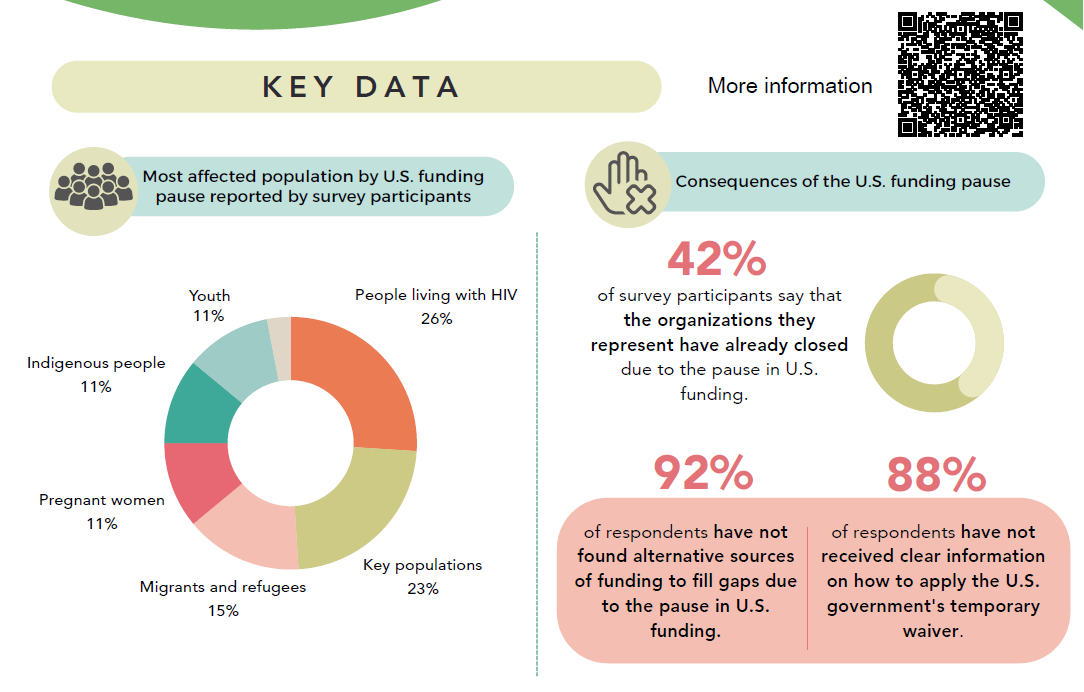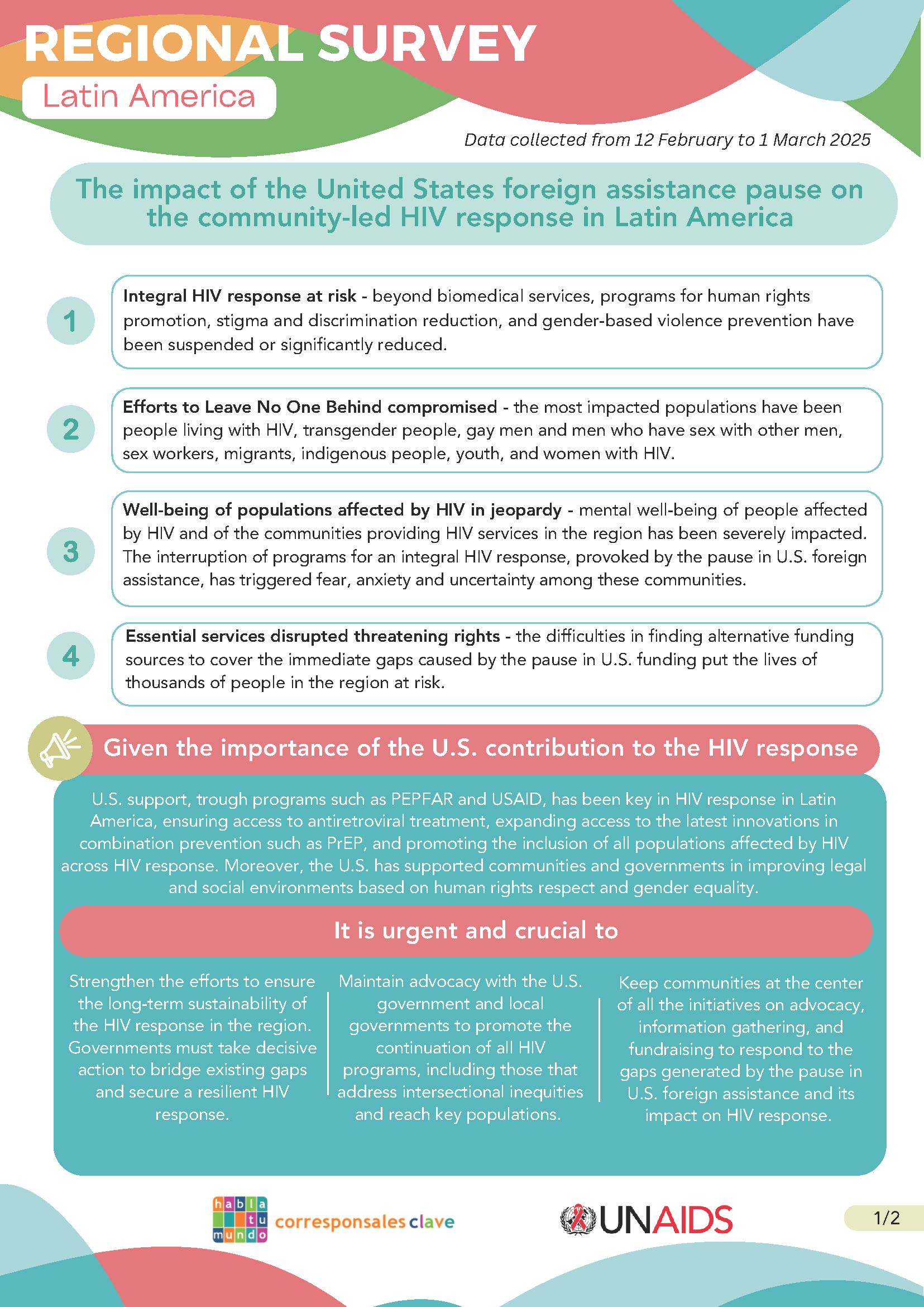unaids.org
UNAIDS






Feature Story
The impact of the United States foreign assistance pause on the community-led HIV response in Latin America
03 March 2025
03 March 2025 03 March 2025







